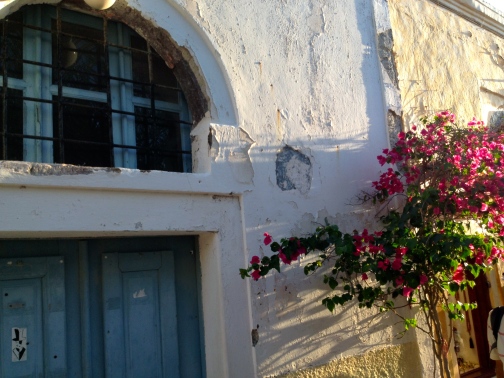
“I think what we are looking for is a way of experiencing the world that will open to us the transcendent that informs it, and at the same time forms ourselves with it.
That is what people want. That is what the should asks for”. J. Campbell
I am caught by mythology.
I am interested in the literature of the spirit. Of stories written and spoken. Stories whose teachings enchant the listener at emotional depths that are felt beyond words. I am drawn to the heritage of stories which speak of eternal values, themes that have informed religions. From ancient times mythology has provided grist for the mill; doorways to working with our inner mysteries.
Stories catch in our minds. They are mirrors reflecting, informing, and shinning guidance towards a clearer understanding of self. Vivifying opportunities for our authentic truth to penetrate and punctuate our day-to-day lives.
“What all humans have in common can be found in myths”(1). We search mythological antiquity for truth, looking for meaning and significance. ” Myths speak to me because they express what I know inside is true”(2).
Mythologies are spoken, read and sung aloud from all over the globe. Like one great story already present in some other system of thought, myth is told from the cultural, linguistic and iconic perspective of the time. “It’s as though the same play were take from one place to another, and at each place the local players put on local costumes and enact the same old play”(3). In essence, we are all effected by myth. In questioning ourselves, we face the mirror of personal myth – an accumulation intrapersonal self understanding learned through stories, beliefs, and practices that effect the ego and psyche. The personal myth is healed within a larger container of the cultural myth. The cultural myth presents a larger view of the world, cosmos and culture. Through which we derive knowing of our place in the natural world and in our larger purpose. The message within myth is a vehicle for inspiration, as well as a cultural framework for educating ourselves and others through different stages of life.
“What is your myth, the myth in which you live?” C. Jung
Derived from the patterns found in myth, Joseph Campbell created a transformation strategy called the Hero’s Journey. According to Campbell, a hero is one who has given their life over to something bigger then themselves. The hero embarks on cycles of going out and returning through a series of internal and/or external adventures. Going beyond their ordinary life to recover what is lost and discover life-giving opportunities. Fundamental psychological transformations occur through this process. “The basic motif of the universal hero’s journey is leaving one’s condition, and finding the source of life to bring your truth into a richer or more mature condition”(4). A journey where one moves out of the conventional safety of what is known to allow for a greater expansion of self.
Myth offers a transformation of consciousness; by trials, illuminating revelations, redemption and achievement. The hero sacrifices themselves for something intrinsic, something valuable – for the self, community, world. As an interpersonal opportunity to look within, the hero’s journey asks the hero to face what is stuck (thoughts, beliefs, feelings, practices, patterns). Hearing the call of adventure, the hero gets to confront parts of themselves. Choosing to take the journey, the hero faces a series of stages.
The Hero’s Journey stages are aligned in a cycle flowing clockwise.
The following are the stages in order:
Call to adventure, finding supernatural aid, meeting threshold guardians, passing through the first threshold, finding mentors and helpers, going through challenges and temptations, meeting more helpers, experiencing the abyss, death and dying of old patterns, redemption and rebirth, transformation, atonement, returning through the second threshold, receiving a ‘gift’ to bring back and the integration back into day-to-day reality. Returning from the journey, the hero is challenged to integrate their learning into their day-to-day world. The hero’s journey then becomes a symbolic manifestation of character. With the environmental and internal landscapes matching ones readiness. Evoking a quality of character one may not have known they possessed.
The challenge is to head the call of adventure, and take the journey. To move past a “sociological stagnation of inauthentic lives and living that has settled upon us. That evokes nothing of our spiritual live, our potentiality and even physical courage”(5). To move past what is stuck in our lives. To leave the old way of living which no longer serves our greatest vision of life and go on the quest of discovering a new way. A quest of a new idea, a seed to germinate new ways of living. The old is not forgotten in the journey, but is released and experienced as wisdom. Through the process, breathe is breathed back into the old dry bones, and the ruins and relics of what we know instinctually and ancestrally are remembered.
I invite you to hear your call of adventure. Listen for it. Noticing if you want to head toward the call, or run away. Perhaps the journey you need for today is in permitting yourself to stay behind. It may be permission to step intentionally towards the call. Perchance the you are already underway on your hero’s journey, and you may take time today to notice how that feels. All noticing is knowledge.
May you be the hero of your own myth.
Chrystal
Chrystal Nelthropp
Holistic Psychotherapist at Holistic Portland
For more information and to schedule a session please contact me at: Chrystal@holisticportland.com or through my website at Holisticportland.com
(1, 2) Bill Moyer. The Power of Myth. (3,4,5) Joseph Campbell, The Power of Myth.



